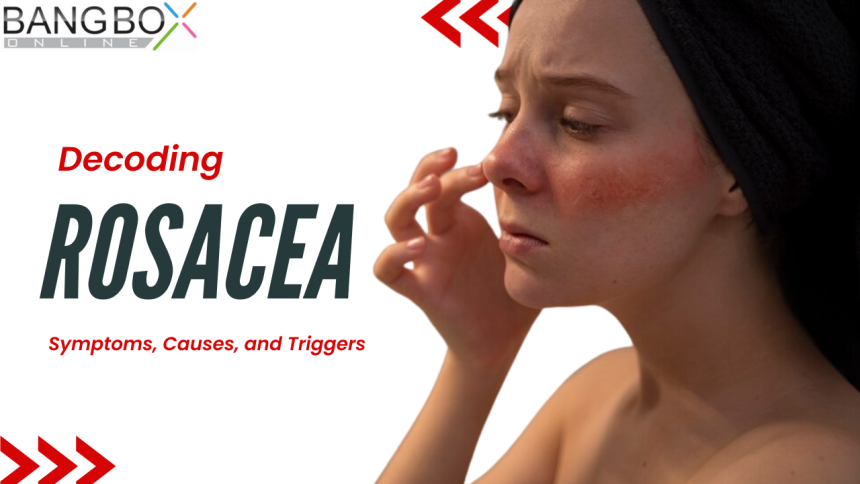
Decoding Rosacea: Unveiling Symptoms, Causes, and Triggers
Rosacea is a global skin concern disturbing many people around the world. Redness, noticeable blood vessels, and sometimes red bumps, appear on the skin of people suffering from this condition. To handle this issue well, it's crucial to understand its symptoms, causes, and common triggers in a complete and thorough way.
Symptoms of Rosacea:
Facial Redness: Rosacea shows up as a lasting red color on the middle part of the face – the cheeks, nose, forehead, and chin – making it a clear sign of the condition.
Visible Blood Vessels: Delicate blood vessels become visible, adding to the overall redness and creating a network of fine crimson lines on the skin.
Papules and Pustules: Rosacea can sometimes cause small, red bumps (papules) or pimples filled with pus (pustules), adding to the drama on the skin.
Eye Irritation: Some people with rosacea may experience eye issues, known as ocular rosacea, which includes symptoms like dryness, itching, and a gritty feeling in the eyes.
Enlarged Nose: In severe and untreated cases, the nose might thicken and enlarge, a rare condition called rhinophyma.
Causes of Rosacea:
Genetics: There's a hint from genetics, indicating a family connection to rosacea. People with a family history may have a higher risk of developing the condition.
Blood Vessel Abnormalities: Abnormalities in blood vessels and how they react to different triggers take center stage, influencing facial redness and the visibility of blood vessels.
Demodex Mites: Although still being studied, tiny Demodex mites are thought to be linked to rosacea, adding a microscopic element to the condition.
Immune System Response: The quirks of the immune system may play a role in the inflammation observed in rosacea.
Common Triggers of Rosacea:
Spicy Foods and Hot Beverages: Eating spicy foods or having hot drinks can make blood vessels widen, leading to a red flush on the face.
Alcohol: Red wine, in particular, can trigger rosacea by expanding blood vessels and increasing blood flow, often making rosacea symptoms worse.
Temperature Extremes: Whether it's hot weather or freezing winds, extreme temperatures and sudden changes can worsen rosacea symptoms.
Sun Exposure: Spending too much time in the sun can be a problem, as UV rays act as a trigger for rosacea. Using sunscreen and protective clothing becomes important.
Stress and Emotional Factors: Emotional ups and downs can trigger or worsen rosacea symptoms, making stress management crucial in handling the condition.
Skincare Product Culprits: Using harsh skincare products, especially those with alcohol or fragrances, can irritate the skin and make rosacea symptoms worse.
To deal with rosacea effectively, it's important to grasp its details – what it looks like, what causes it underneath, and the small things that can set it off. If you notice redness or any other change in skin then consult the best dermatologist in your area like Prof Dr Ikram Ullah Khan.

The Beauty and Meaning Behind a Flower Bouquet
The Beauty and Meaning Behind a Flower Bouquet Flowers have been cherished for>] as symbo...

Everything You Need to Know About Wheel Rim Repair
Damaged rims can cause tire misalignment, leading to uneven wear and reduced handling perf...

